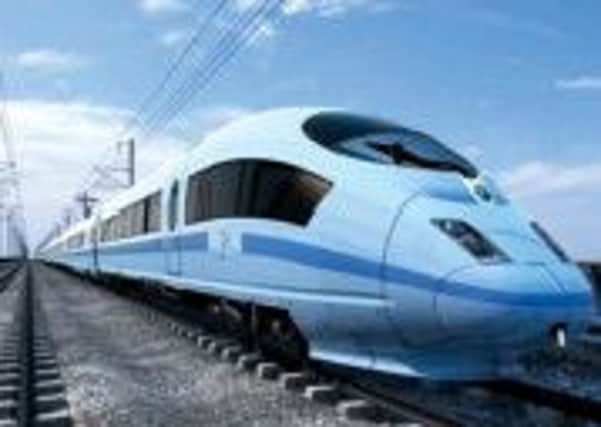Route clear for HS2 rail line as Supreme Court challenge fails


The highest court in the land unanimously dismissed accusations by objectors that the Government was “cutting corners” to push the £50bn HS2 project through Parliament, in breach of European environmental laws.
No further legal action can now be taken in the UK, though the objectors – mainly local councils and residents’ groups along the Southern part of the route – said they are now planning to take their case to Europe, threatening more delays.
Advertisement
Hide AdAdvertisement
Hide AdThey had challenged the Transport Secretary’s decision to introduce special Hybrid Bills in Parliament to authorise the development between London, Birmingham and the North.
It was argued the Hybrid Bill procedure was inappropriate, and would not allow proper scrutiny of the proposals in regard to environmental concerns.
Government transport chiefs were also accused of failing to carry out a strategic environmental assessment (SEA), in breach of an EU directive.
But seven Supreme Court judges all rejected the challenge.
A further challenge brought by local councils led by the London Borough of Hillingdon over a second EU directive – the Environmental Impact Assessment Directive (EIAD) – was also dismissed. The councils had argued that the Hybrid Bill procedure – used to reflect both the public importance of proposed legislation and also its impact on private individuals or groups – did not comply with the requirements of the EIAD.
Advertisement
Hide AdAdvertisement
Hide AdDismissing the challenges and giving the Hybrid Bill route the all-clear, the judges ruled there was “no reason to suppose that MPs will be unable properly to examine and debate the proposed project”.
They also ruled that there was no need for the court to refer the case to the Court of Justice of the European Union.
Their decision was welcomed by Transport Minister Baroness Kramer, who said: “We welcome that the Supreme Court has unanimously rejected the appeal, which addressed technical issues that had no bearing on the need for a new north-south railway.
“We will now continue to press ahead with the delivery of HS2.”
Advertisement
Hide AdAdvertisement
Hide AdLeading campaign group HS2 Action Alliance warned that – although the legal battle can be taken no further in the UK – it would be continued in Europe.
Alliance director Hilary Wharf said: “We always knew this would be a long fight. We will continue to press the Government to meet its environmental obligations.
“The Government should be safeguarding our environment for future generations and HS2 is an unnecessary, hugely damaging project environmentally.”
The ruling came as transport bosses in Yorkshire hit back at claims the scheme is not supported by business in the region.
Advertisement
Hide AdAdvertisement
Hide AdA survey carried out for the Yorkshire Post earlier this week found that almost two-thirds of small and medium-sized enterprises who were asked said Yorkshire does not need the new high-speed line linking Leeds, Sheffield, Birmingham and London.
But James Lewis, chairman of West Yorkshire transport authority Metro, said a similar survey of larger businesses undertaken in 2012 showed huge support for the project.
“This finding is at odds to the reaction we received from delegates at a ‘Yorkshire Mafia’ Business Conference in 2012,” Coun Lewis said. “At that event, 96 per cent of delegates responding to a Metro questionnaire said they believed high-speed rail ‘will benefit business in Yorkshire’.
“Over 150 of the Conference delegates who visited Metro’s HS2 stand completed the questionnaire. More than 80 per cent of those respondents said they thought the cost of HS2 was justified, and 94 per cent believed high-speed rail would be good for Yorkshire.
Advertisement
Hide AdAdvertisement
Hide Ad“Both Metro and the Yorkshire Post’s surveys were taken by similar numbers of people who were self-selecting participants, although I think a large number of the ‘Yorkshire Mafia’ event delegates were likely to be from larger organisations.”